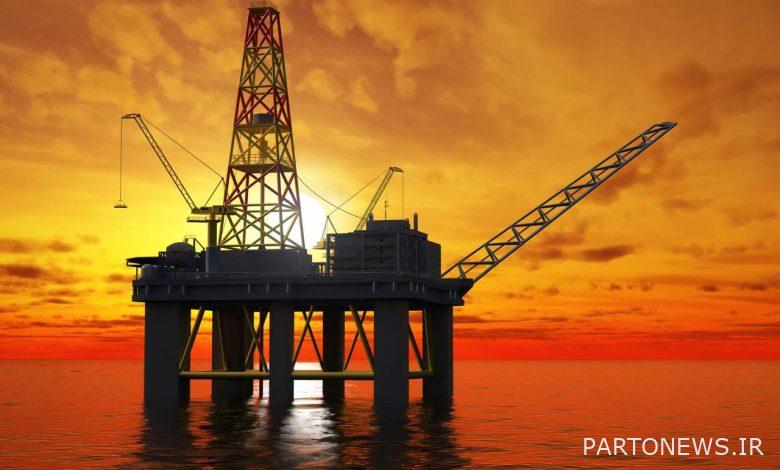Alliance of the World Energy Triangle to neutralize US sanctions

According to IRNA, the oil market has been the scene of political tensions in various countries over the past few years. At the forefront, of course, are the US unilateral sanctions against Iran’s oil industry, which were aimed at completely halting Iran’s oil exports, but with the coming to power of the 13th government, not only were these sanctions ineffective, but Iran’s oil exports and production capacity also increased.
Along with Iran, Venezuela also faces US oil sanctions. The sanctions have dealt a severe blow to Venezuela’s economy, but have been somewhat ineffective in recent years with Iran. In only one case, 5 Iranian tankers with the flag of our country exported gasoline to Venezuela. Exports of Iranian oil and gas condensate to Venezuela to maintain the country’s oil production capacity were also on the agenda.
But this was not the end of the US adventure in the oil market under the pretext of imposing sanctions on major oil and gas producers. The United States has announced sanctions on Russia’s oil and gas industry under the pretext of military tensions between Ukraine and Russia. Following that, the European Union announced a boycott of Russian oil and a 90% reduction in oil imports from Russia by the end of this year.
The United States has backed down somewhat after prices reacted to the Russian embargo, saying it would likely set a price cap on Russian oil instead of boycotting it.
Importantly, Iran, Russia, and Venezuela together account for about 45 percent of the world’s oil and 40 percent of the world’s gas. This means that about half of the world’s oil and gas reserves are in the hands of these three countries, and the union of these three countries in the energy market can not only neutralize US sanctions, but also affect pricing.
Venezuela is the world’s largest holder of oil reserves, with 303 billion barrels of the world’s oil reserves alone, or 21.3 percent of the world’s oil reserves.
Iran also has 157 billion barrels of oil, which accounts for 18% of the world’s oil reserves to our country. Russia also has 80 billion barrels of oil, which is equivalent to 5.3 percent of the world’s oil reserves.
Russia, with 35 trillion cubic meters of gas, holds more than 19 percent of the world’s gas reserves. About 65% of the reserves are located in the Siberian region. After Russia, Iran is in second place with 33 trillion gas reserves discovered and a share of 17.1 percent.
Venezuela has about 5 trillion cubic meters of gas, which is equivalent to 2.6 of the world’s gas reserves.
Meanwhile, Iran, as the largest holder of oil and gas reserves in the world, has an important role in creating this alliance. The development of energy diplomacy is one of the top priorities of the 13th government, as is the work plan of the Minister of Oil.
In addition to paying attention to energy relations with neighboring countries, from the Republic of Azerbaijan and Turkmenistan to Oman and Pakistan, Iran has also paid special attention to more distant partners.
Javad Oji accompanied the President on a visit to Russia by Ayatollah Ibrahim Ra’isi. There, Iran and Russia signed memoranda of understanding and agreements in various fields of oil and gas.
In recent weeks, the Russian Deputy Prime Minister arrived in Iran with a Russian delegation. Signed.
Last May, the Minister of Oil paid numerous visits to Latin American countries, including Venezuela and Nicaragua, in conjunction with the activation of energy diplomacy. During this visit, four memoranda of understanding and two agreements in the field of oil were signed.
Oji’s visit to Caracas came as Iran and Venezuela stepped up cooperation under US sanctions. Caracas imports Iranian gas condensate to dilute its crude oil. Iran also exports refined products, engineering services and spare parts to help Venezuela’s oil industry.
In the first quarter of this year, Iran’s oil exports grew more than any other country in the Middle East and reached the highest level since the withdrawal of the United States from the UN Security Council.
Reuters also reported that documents from the state oil company Petroleus di Venezuela (PDVSA) show that the country has begun importing heavy Iranian oil to feed its domestic refineries.
With the import of Iranian heavy oil, the swap agreement that was signed last year between the two countries under US sanctions is expanding.
With the import of Iranian heavy oil, the swap agreement that was signed last year between the two countries under US sanctions is expanding.
The two countries first agreed on a swap last year, and it was decided that Venezuelan oil company Petroleus Di would import Iranian gas condensate to dilute and process Iran’s surplus heavy oil for export. In return, the National Iranian Oil Company (NIOC) receives Venezuelan crude oil.
But the oil cooperation between the two countries did not end here. In recent days, Venezuelan President Nicolas Maduro visited Iran, during which the Presidents of Iran and Venezuela, as holders of more than 460 billion barrels of crude oil reserves (Saturday, June 21), formally negotiated in Tehran and signed a 20-year cooperation document. They signed.
Javad Oji and Nicolas Maduro also discussed and decided on issues such as fuel supply, the export of petroleum products, the export of petrochemical products and the export of petrochemical catalysts.
Other topics discussed at the meeting included decisions on the export of technical and engineering services, the reconstruction and modernization of refineries, and the development of oil and gas fields.
According to IRNA, US oil sanctions against the three countries, although affecting the economies of all three countries, Iran, Russia and Venezuela, but have created an opportunity that can be used to establish the main role of these countries in world energy relations.

